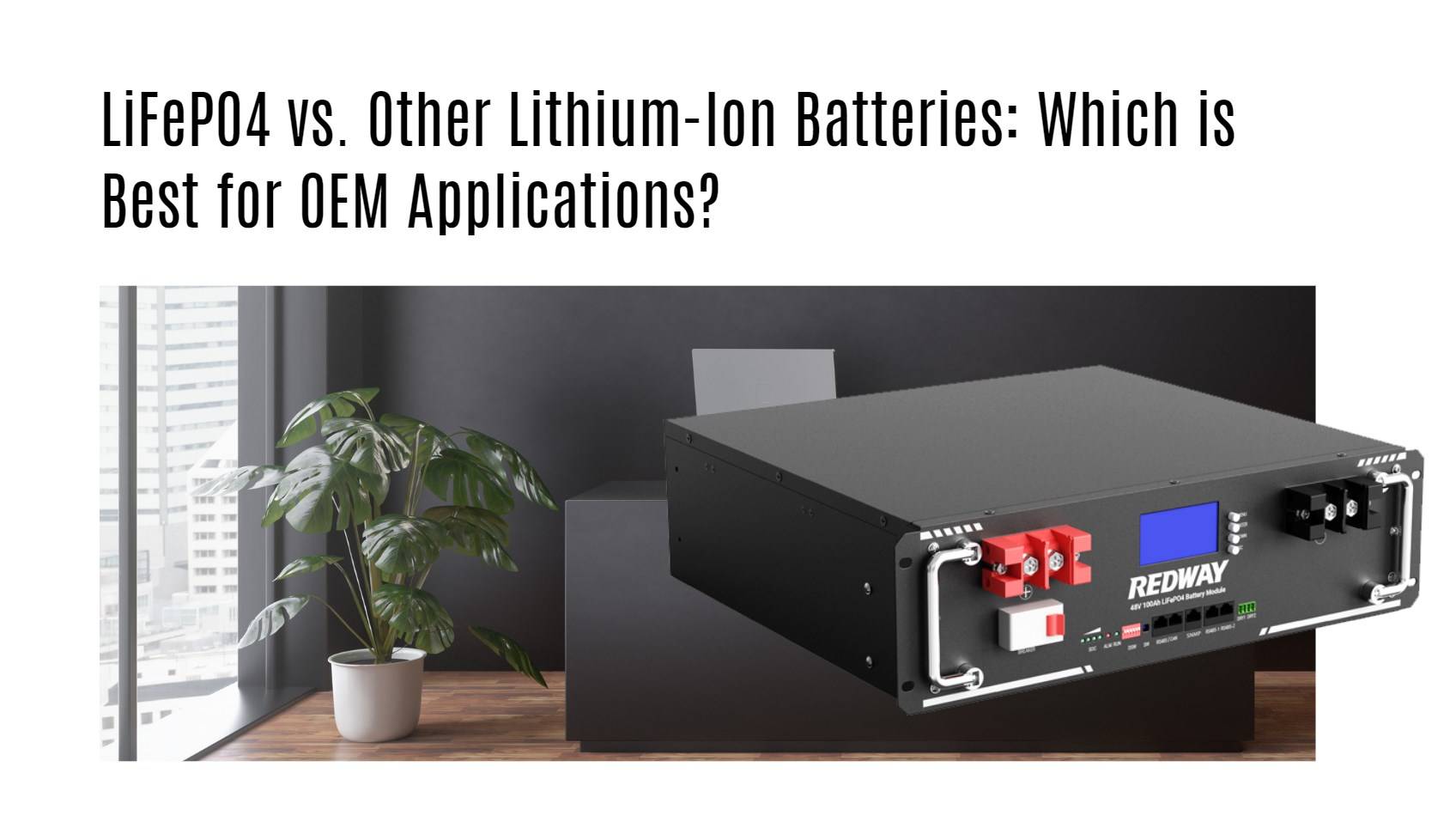When considering batteries for OEM applications, choosing between LiFePO4 (Lithium Iron Phosphate) and traditional lithium-ion batteries is crucial. LiFePO4 batteries offer enhanced safety, longer lifespan, and thermal stability, making them ideal for demanding applications. In contrast, traditional lithium-ion batteries provide higher energy density, suitable for compact devices. Understanding these differences helps in making informed decisions.
What are the key differences in chemistry between LiFePO4 and lithium-ion batteries?
The main distinction lies in their chemical composition. LiFePO4 batteries use lithium iron phosphate as the cathode material, while traditional lithium-ion batteries often utilize materials like cobalt oxide or nickel manganese cobalt oxide. This difference not only affects performance but also impacts safety and environmental considerations.Chart: Chemical Composition Comparison
| Battery Type | Cathode Material | Anode Material |
|---|---|---|
| LiFePO4 | Lithium Iron Phosphate | Carbon |
| Lithium-Ion | Cobalt Oxide / Nickel Manganese | Graphite |
How do safety features compare between LiFePO4 and other lithium-ion batteries?
LiFePO4 batteries are generally considered safer due to their stable chemical structure, which reduces the risk of thermal runaway—a common issue with traditional lithium-ion batteries. The robust bonds in LiFePO4 make it less prone to overheating or catching fire, making it a preferred choice in applications where safety is paramount.Chart: Safety Features Comparison
| Feature | LiFePO4 | Lithium-Ion |
|---|---|---|
| Thermal Stability | High | Moderate to Low |
| Risk of Thermal Runaway | Very Low | Higher Risk |
| Overheating Potential | Minimal | Significant |
What are the energy density differences between these battery types?
Energy density is a critical factor when evaluating battery performance. Traditional lithium-ion batteries typically have a higher energy density, ranging from 150 to 250 Wh/kg, compared to LiFePO4, which averages around 90 to 165 Wh/kg. This means that while lithium-ion batteries can store more energy in a smaller package, LiFePO4 batteries excel in safety and longevity.Chart: Energy Density Comparison
| Battery Type | Energy Density (Wh/kg) |
|---|---|
| LiFePO4 | 90 – 165 |
| Lithium-Ion | 150 – 250 |
How do lifespan and cycle life differ between LiFePO4 and lithium-ion batteries?
LiFePO4 batteries typically offer a longer lifespan, with cycle lives exceeding 3000 cycles, whereas traditional lithium-ion batteries usually last around 500 to 1500 cycles depending on usage conditions. This extended lifecycle makes LiFePO4 a more cost-effective option over time, particularly for applications requiring frequent charging and discharging.Chart: Lifespan Comparison
| Battery Type | Cycle Life |
|---|---|
| LiFePO4 | >3000 cycles |
| Lithium-Ion | 500 – 1500 cycles |
Which applications are best suited for LiFePO4 versus lithium-ion batteries?
The choice of battery largely depends on the application requirements:
- LiFePO4 Batteries: Ideal for electric vehicles, solar energy storage systems, and backup power solutions due to their safety features, long cycle life, and stability under varying temperatures.
- Lithium-Ion Batteries: Better suited for portable electronics like smartphones, laptops, and other compact devices where space is limited but high energy density is essential.
Both types have unique advantages that cater to different needs within OEM applications.Buy Wholesale Battery Tips
For wholesale battery buyers or clients seeking OEM orders overseas, choosing Redway Battery is an excellent option. With over 13 years of experience, Redway offers high-quality lithium batteries as a sustainable alternative to lead-acid batteries. To make OEM orders from a reliable manufacturer like Redway Battery:
- Research potential suppliers based on their reputation and product offerings.
- Request samples to assess quality before placing bulk orders.
- Discuss customization options to meet specific project requirements.
Industrial News
Recent developments in battery technology highlight significant advancements:
- Emerging Trends in Recycling: As demand for sustainable solutions increases, manufacturers are focusing on recycling technologies that improve the lifecycle management of both LiFePO4 and traditional lithium-ion batteries.
- Innovations in Energy Storage: New materials are being researched to enhance energy density in both battery types, aiming to improve performance while maintaining safety standards.
These trends indicate a robust growth trajectory for both battery technologies as industries seek efficient energy storage solutions.
Redway Expert Views
“Choosing between LiFePO4 and traditional lithium-ion batteries depends on specific application needs,” stated an expert from Redway Battery. “While LiFePO4 excels in safety and longevity, traditional lithium-ion offers compactness for portable electronics. Understanding these factors ensures optimal performance in OEM applications.”
FAQ Section
- What is the main advantage of LiFePO4 over traditional lithium-ion?
LiFePO4 offers superior safety features, longer cycle life, and thermal stability compared to traditional lithium-ion batteries. - How does energy density affect battery choice?
Higher energy density in lithium-ion batteries allows them to store more energy in smaller sizes, making them ideal for portable devices. - What applications benefit most from using LiFePO4?
LiFePO4 is best suited for electric vehicles, solar storage systems, and backup power solutions where safety is critical. - How long do LiFePO4 batteries last compared to lithium-ion?
LiFePO4 typically lasts over 3000 cycles, while traditional lithium-ion may last between 500 to 1500 cycles. - Are there environmental benefits to using LiFePO4?
Yes, LiFePO4 batteries do not contain hazardous materials like cobalt or nickel found in some lithium-ion chemistries, making them more environmentally friendly.



